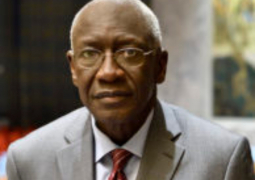According to the TRRC Report, Saikou Jammeh, onetime GPU secretary general, related 15 incidents of arbitrary closure without due process being followed except in the case of Citizen FM in 1998.
“The modus operandi was that mostly, two or three NIA operatives who would walk into the offices and tell them to either cease publication or cease broadcasting, saying they received orders from the top, which was taken to mean orders from the presidency.”
The report elaborated that “the former President Yahya A.J.J Jammeh knew that persons were attributing things to him and he once said in a meeting: “people usually say order from the top but his office (Yahya A.J.J Jammeh’s) is the topmost office in the country and that the only office that is above his office is the office of God.”
“D.A. Jawo also narrated to the Commission how Citizen FM was forcefully shut down with the proprietor Baboucarr Gaye and Ebrima Sillah arrested.
“During their arrest, they were taken to NIA headquarters and questioned without being cautioned or told about their rights.
“The closure of Citizen FM is corroborated by Fatou Jagne Senghore who confirmed that: “the licence of the radio was cancelled and the equipment seized without any warrant. Later the courts ruled in favour of the radio station, but the owner could not continue its programming due to the numerous other hurdles the authorities put on his way. The owner subsequently died in mid-August 2012.”
Nevertheless, the regime posed other challenges other than just closing down media bodies, which included ordering printing services not to print for newspapers.
“According to the witness Saikou Camara, many of the print media houses did not have their own printing press. They depended on the National Printing Press to print their papers for them at a fee. The government ordered the printing services not to print private newspapers. This was a significant setback for newspaper houses as this decision affected the quality of the newspapers, caused delays in the circulation of the papers and increased the cost of production,” the report outlined.
“After the burning of the printing press of The Independent newspaper, they had to resort to using the Ahmadiya Mission Printers.
“The overview by the Secretary General of The GPU presented a scenario of a hostile operating climate for journalists and for freedom of expression due to the repressive laws that were used to muzzle journalists and the media, leading many journalists to leave the country for their own safety.”
The report has also elaborated that data from the Doha Centre for Media Freedom based on a study conducted in 2010 on: “The Situation of Gambian Journalists in Exile” showed that at least twenty (20) percent of practicing Gambian journalists lived in exile at the time.”





